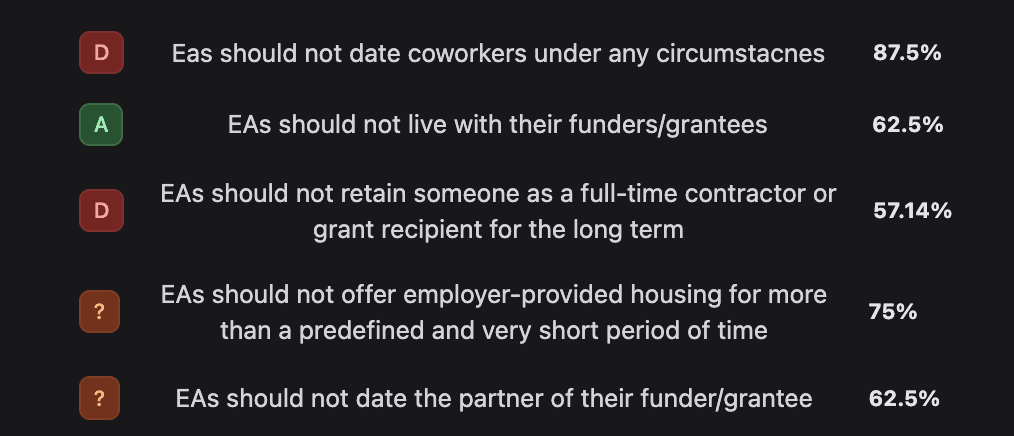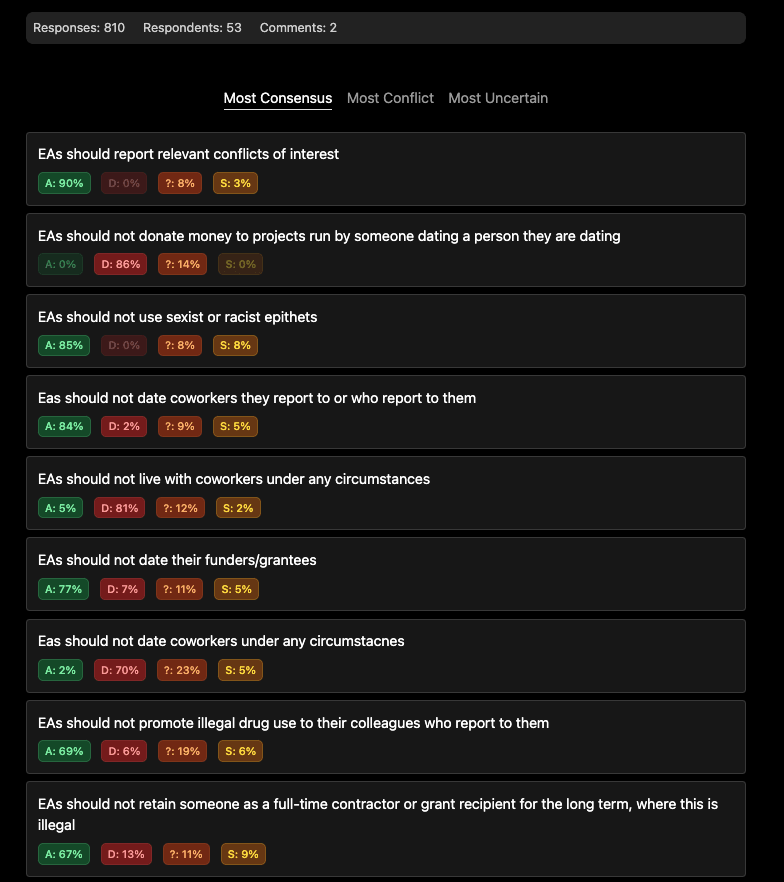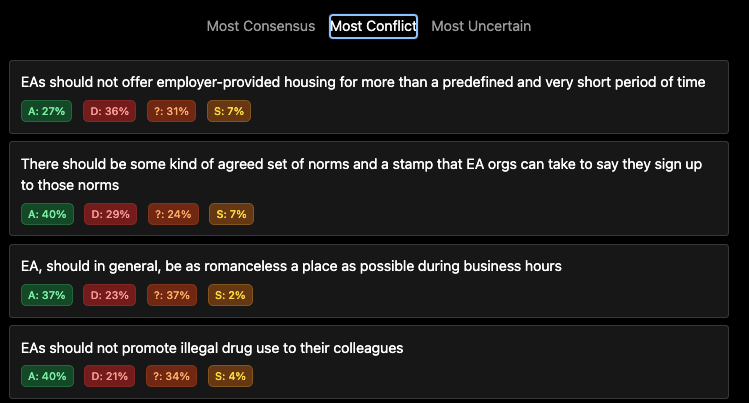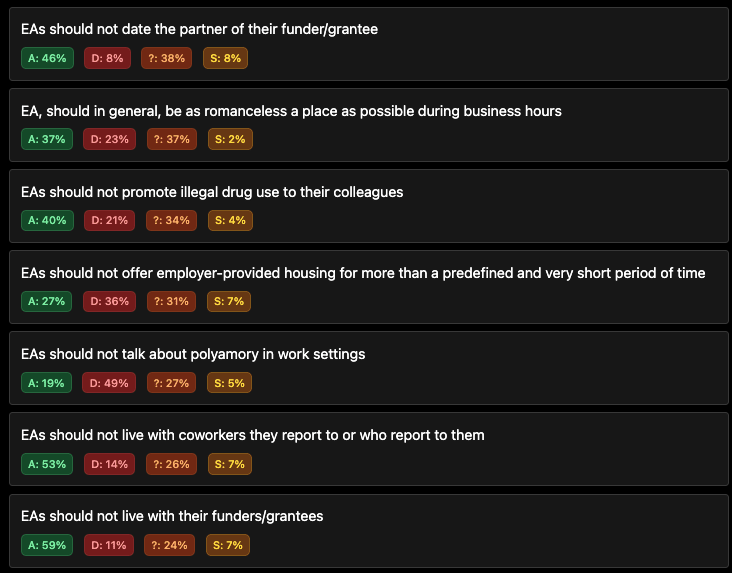There has already been ample discussion of what norms and taboos should exist in the EA community, especially over the past ten months. Below, I'm sharing an incomplete list of actions and dynamics I would strongly encourage EAs and EA organizations to either strictly avoid or treat as warranting a serious—and possibly ongoing—risk analysis.
I believe there is a reasonable risk should EAs:
- Live with coworkers, especially when there is a power differential and especially when there is a direct report relationship
- Date coworkers, especially when there is a power differential and especially when there is a direct report relationship
- Promote[1] drug use among coworkers, including legal drugs, and including alcohol and stimulants
- Live with their funders/grantees, especially when substantial conflict-of-interest mechanisms are not active
- Date their funders/grantees, especially when substantial conflict-of-interest mechanisms are not active
- Date the partner of their funder/grantee, especially when substantial conflict-of-interest mechanisms are not active
- Retain someone as a full-time contractor or grant recipient for the long term, especially when it might not adhere to legal guidelines
- Offer employer-provided housing for more than a predefined and very short period of time, thereby making an employee’s housing dependent on their continued employment and allowing an employer access to an employee’s personal living space
Potentially more controversial, two aspects of the community I believe have substantial downsides that the community has insufficiently discussed or addressed:
- EA™ Group Houses and the branding of private, personal spaces as “EA”
- "Work trials" that require interruption of regular employment to complete, such that those currently employed full-time must leave their existing job to be considered for a prospective job
As said, this list is far from complete and I imagine people may disagree with portions of it. I’m hoping to stake this as a position held by some EAs and I’m hoping this post can serve as a prompt for further discussion and assessment.
- ^
“Promote” is an ambiguous term here. I think this is true to life in that one person’s enthusiastic endorsement of a drug is another person’s peer pressure.





There are millions of people around the world who live paycheck to paycheck, and run the risk of becoming homeless if they quit their jobs. We don't have the resources to help all of those people, and I'm not immediately seeing how deontology helps us figure out how to allocate our limited resources between this and various other obligations we may have. [Edit: maybe this section was obtuse on my part -- see Yonatan's reply below.]
I think it is really valuable for people in EA to feel comfortable pushing back against their boss. (I see strong consequentialist arguments for this. Those arguments are why I will focus on people in EA, rather than non-EAs living paycheck to paycheck, for the rest of this comment.) I think there are ways to achieve this cost-effectively. For example:
When possible, have employee housing arrangements made directly with a landlord or similar person, rather than routing through someone they have a working relationship with.
Agree in advance that any employee who lives for free in employer-provided housing gets to continue living there for, say, 3 months if they quit/get fired.
Build things like Basefund to the point where no EA thinks it is very hard to quit their job. (For example, a hypothetical Basefund+ could guarantee that EA employees who quit/get fired always receive a generous severance package. This idea might seem costly at first, but because the money is going to an EA instead of a landlord, it is much more likely to e.g. be donated to an effective charity.)
Encourage EAs to live with non-EAs when all else is equal.